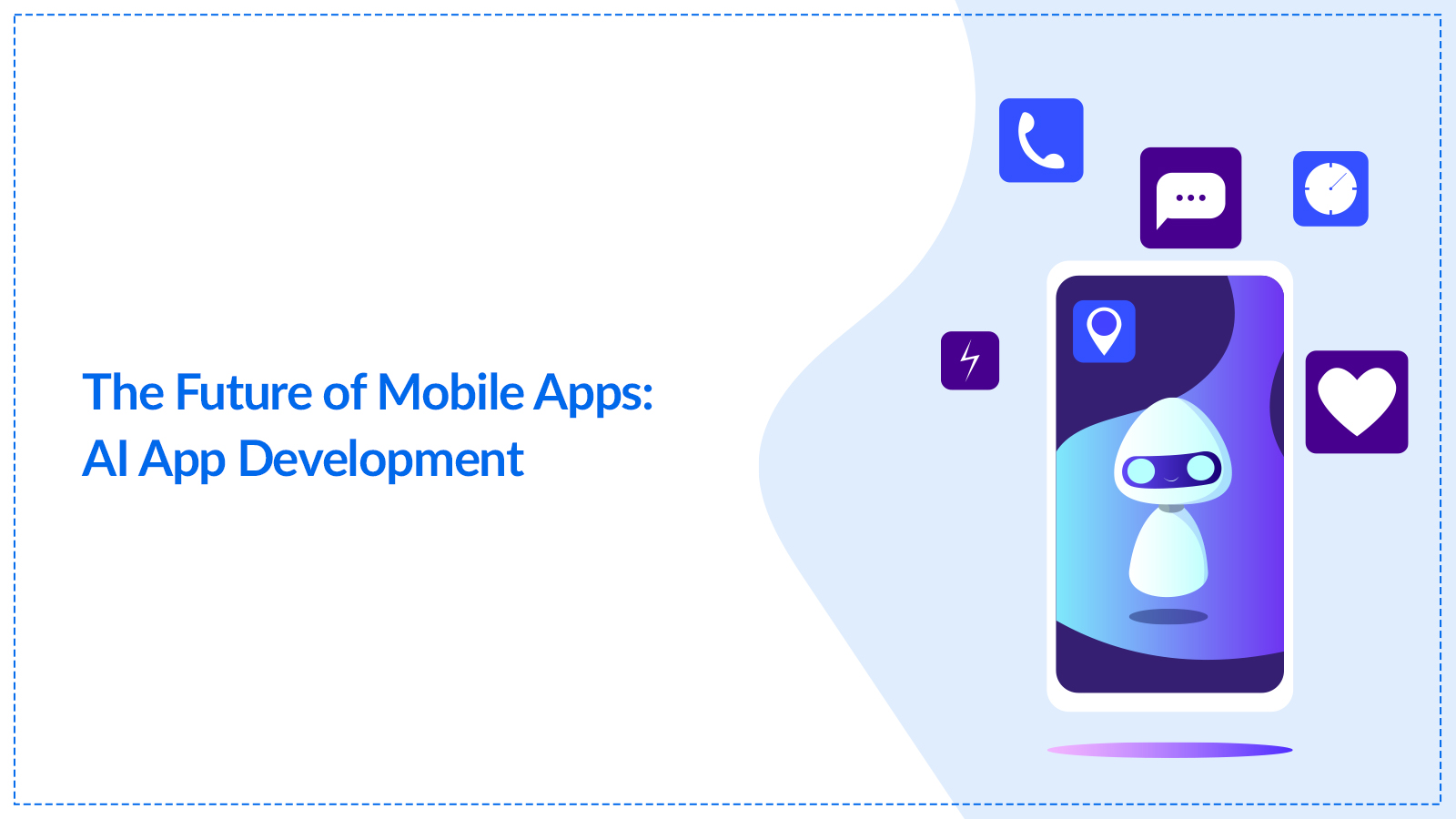Our author, Mubasshir, aims to provide practical solutions to their readers with his years of expertise as a technology writer and tech enthusiast. He loves to explore innovative tools and trends in the creative and tech industries.
A survey conducted by Clutch revealed that sixty-one per cent of firms believe that opting for AI app development trends helps them get an edge. From the basic needs of having a mobile phone like a simple calculator app, and now barring multiple AI-integrated apps. Apps have become a means to perform a variety of tasks within an industry, thus contributing exponentially within different sectors. There has been a growing trend in smartphone usage. This has led to businesses putting money into AI-enhanced mobile applications and IoT so as to remain competitive. Moreover, there are predictions that the future of mobile apps is going to increase in impact and intensity. Well, here we’ll take a quick look at the mobile apps future.
Why are Mobile Apps Important for Thriving Businesses?
Mobile applications are crucial for prospering businesses. They can communicate with their clients directly leading to better sales. The use of apps has extended to customer support and marketing purposes. E-commerce mobile applications make it easy for customers to shop while patients can use medical applications for the nurse to monitor them from a distance instead of going to a hospital facility.
The future trends of AI and IoT apps are changing the outlook of mobile applications. AI mobile application development enables mobile apps to study users and their interactions with them and create targeted content to facilitate their decision-making. IoT applications, on the other hand, are augmentable devices that work together to perform multiple tasks, such as industrial or home automation.
In addition, cross-platform development can allow businesses to expand their reach without prioritising other platforms separately. Thus, it is crucial to select the right platforms for mobile app development from the very beginning, as this is one of the key determinants of future success.
Upcoming Trends
The world of AI-powered mobile app development is full of promises. With the integration of AI, development becomes faster, and testing and debugging become reliable and better. AI-powered tools like GitHub Copilot and TabNine. In fact, testing and debugging also improve and become more reliable.
With the help of AI, expect your apps to become more intuitive and smarter and connect with your devices seamlessly. AI-powered IoT apps will enable real-time control and insights, making your home, car, and even health smarter than ever. With hyper-personalisation, gestures and controls become easier and better. With edge AI ensuring lightning-fast performance and robust privacy, the next wave of mobile apps promises to be smarter, faster, and more immersive.
Also read: Why Android App Development is Essential for Your Business in 2025?
Impact on Businesses
Let’s understand how the future of mobile applications is impacting businesses across various sectors:
- E-commerce: AI integration in apps is able to forecast customer needs more accurately as well as manage the stock more efficiently.
- Healthcare: AI-fueled applications can also provide assistance in tracking patients’ conditions and notifying them when they need to be in a hospital.
- Education: There are learning apps which are interactive and use AI to generate suitable content for learners in order to improve their performance.
- Retail: AI mobile apps allow for better customer service with the assistance of virtual fittings and personalised recommendations of clothes to the customers.
- Logistics: With real-time tracking powered by IoT, applications can facilitate better management of the supply chain.
The mobile app development platform businesses choose significantly influences how effectively these impacts are realised. Companies must ensure that platforms align with their technological goals.
Future of Mobile Apps: Challenges and Opportunities
Challenges
- Data Security: With more data being collected, ensuring privacy and security is critical.
- Cross-Platform Compatibility: Developing apps that function seamlessly across different devices remains a challenge.
- High Development Costs: Advanced features like AI and IoT integration can be expensive to implement.
- User Retention: With increasing competition, keeping users engaged is a constant battle.
- Regulatory Compliance: Adhering to data protection laws across regions complicates development.
Opportunities
- Bolstered Consumer Experience: Companies are able to leverage the insights provided by AI systems to customise their offerings per the user.
- Home Automation Systems: Applications that allow the automation of multiple functions in the house are becoming increasingly popular.
- Advancement in Healthcare: AI-based app development is able to redefine the way patient remote monitoring and diagnostics are done.
- Integration of AR and VR: These technologies are capable of adding valuable interactive features for users.
- Customer Prediction: AI enables businesses to predict their clients’ wants and enhance the development of strategies.
- Voice Recognition: Applications that use voice recognition as the only interface improve usability.
- Sustainability: Mobile applications with AI integration can be beneficial in promoting sustainable practices, for example, monitoring energy consumption.
- AI Chatbots: These enhance consumers’ experience as they are able to respond almost instantly.
- Blockchain in Apps: Provides the ability to make safe transactions and be transparent.
- Expansion into Rural Areas: Affordable smartphones and applications can increase the number of users.
Conclusion
The evolution of mobile applications is bound to be interesting and full of prospects. The further integration of AI and IoT applications allows businesses to meet unique and more efficient peculiarities. But on the other hand, challenges such as security and development costs will have to be tackled. For India’s companies, the ability to follow such trends and select an appropriate mobile application development company in India will be key for competition in the market.
FAQs
AI integration involves embedding AI techniques into a mobile application. This encompasses functionalities such as personalisation, automation, and predictive analysis.
IoT allows the applications to interact and communicate with gadgets, making them part of an array of interconnected intelligent systems. Examples of intelligent systems include home systems and industrial systems.
Cross-platform Migrating toys to another platform is possible with minor changes which enables a wider audience and cuts down development costs.
Platforms like Flutter, React Native, and Xamarin have significantly revolutionised mobile application development. They facilitate easier cross-platform development.


